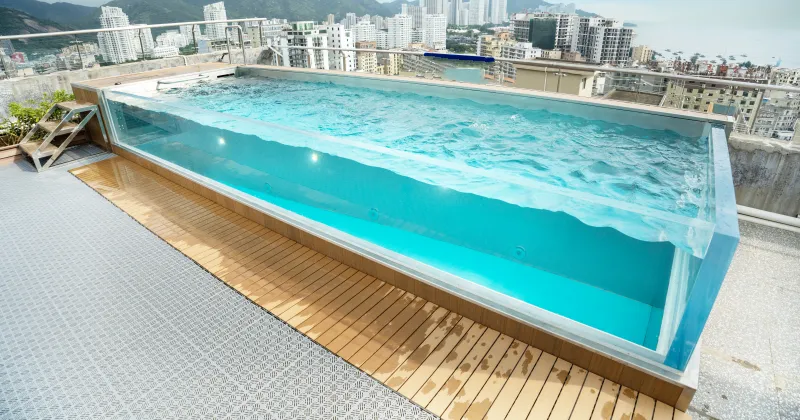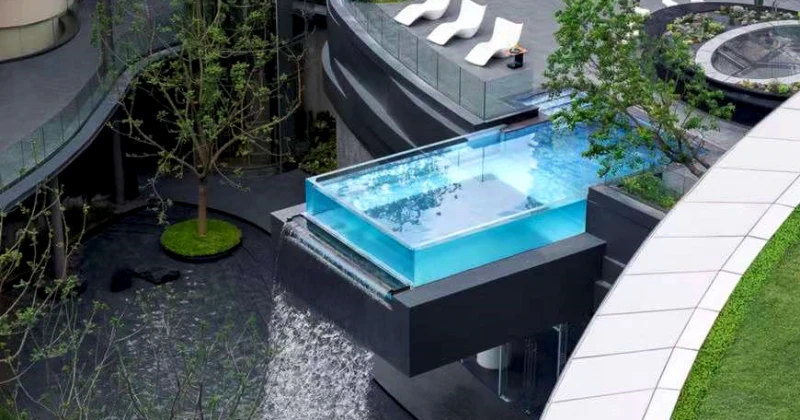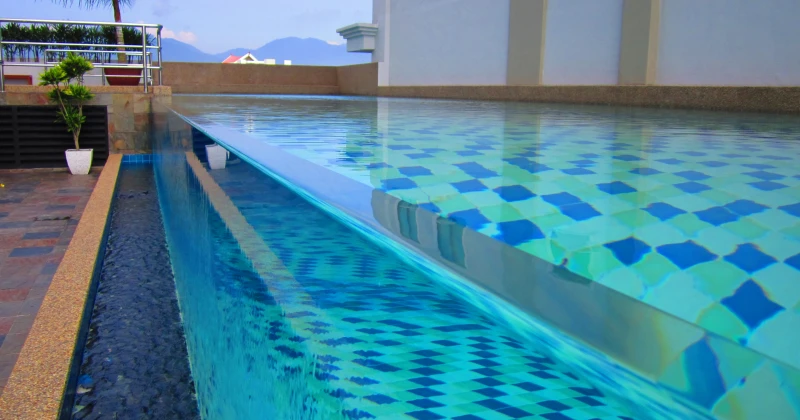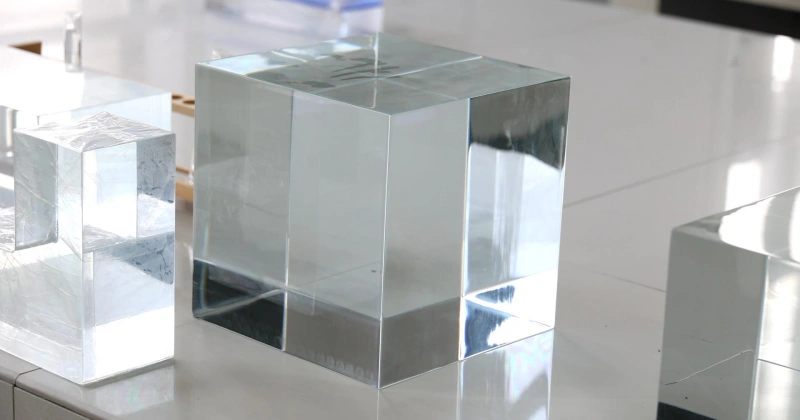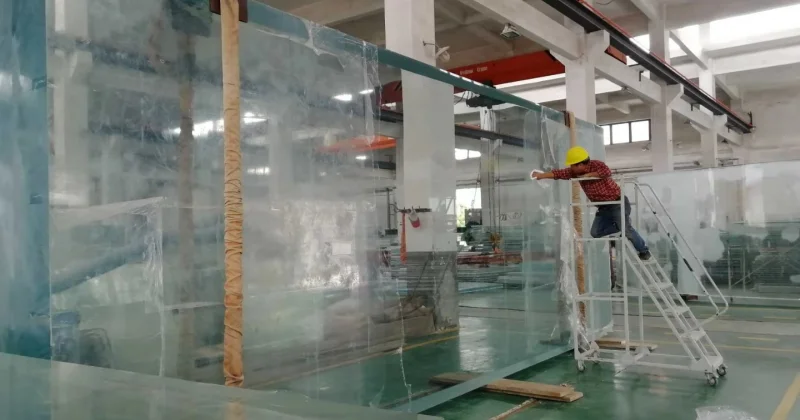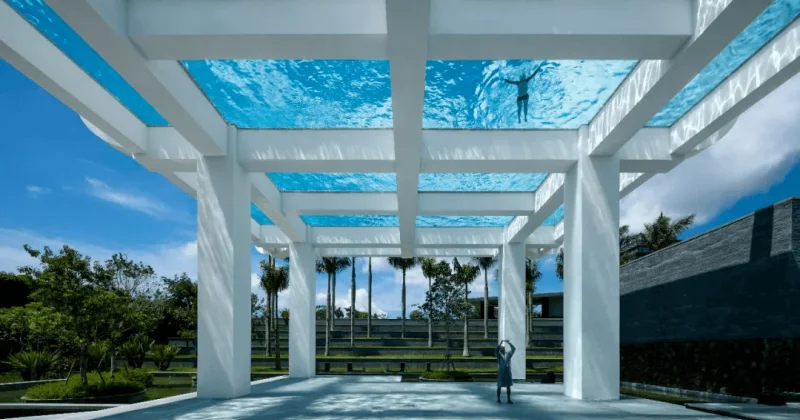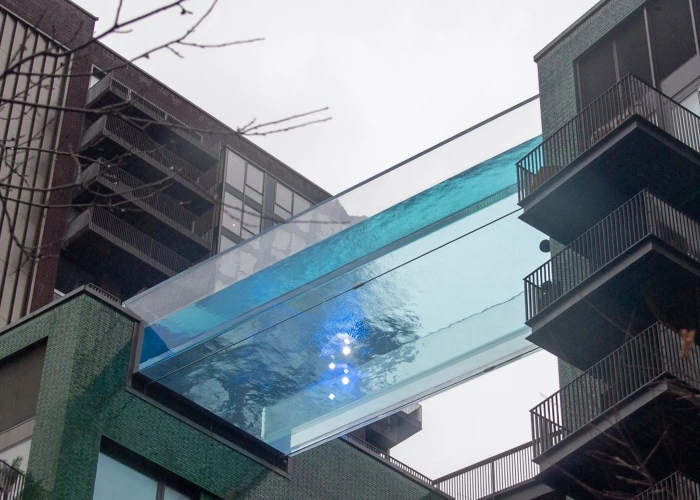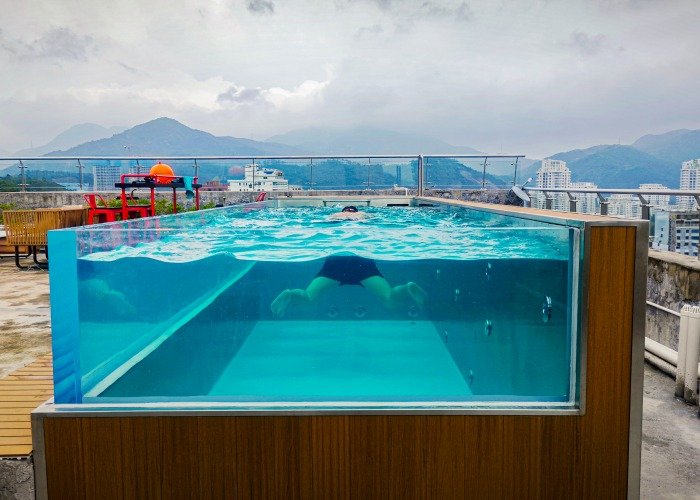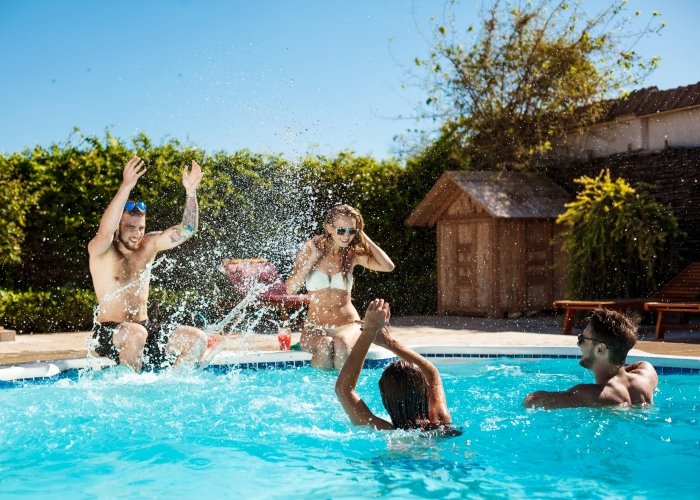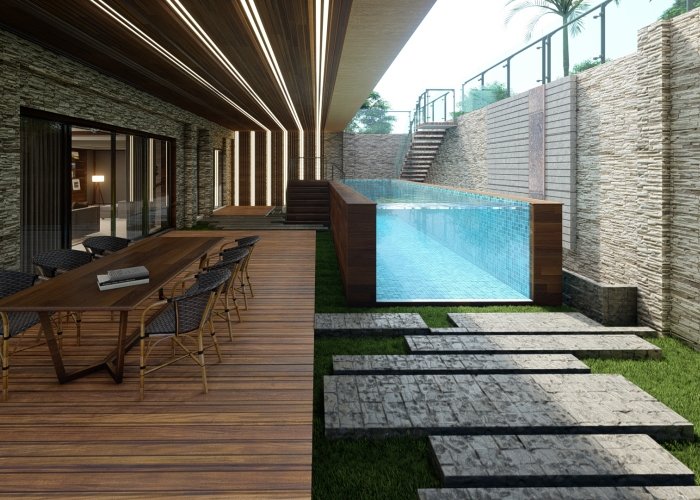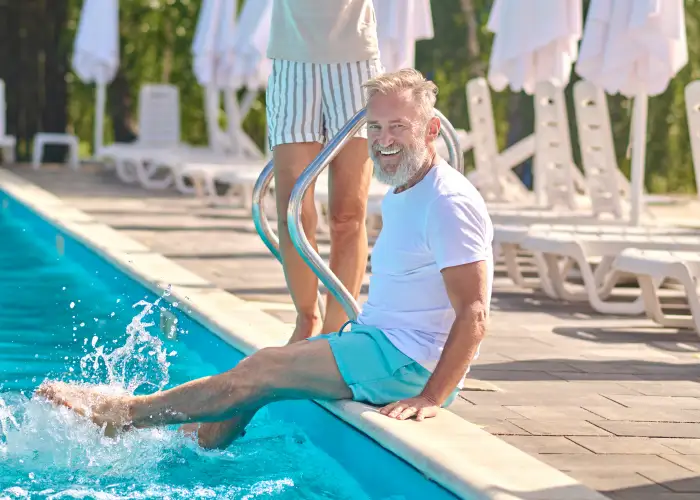
Why Exercise Pools Are Perfect for Rehabilitation and Recovery
Who likes dealing with the frustration of a long and painful recovery after an injury? Not many, right? No one likes the downtime caused by an injury or the long recovery process. The recovery feels better when you're in the right environment. That's where exercise pools come in - they're the supportive friend that helps you get back on your feet.
Rehabilitation and recovery are easier, more comfortable, efficient, and fun in an exercise pool. Let’s explore why exercise pools are the perfect solution for rehabilitation and recovery.
What Makes Exercise Pools Special?
So, let’s discuss in which ways water is a good companion during the recovery period. When you step into a pool, something pretty cool happens - your body becomes lighter. The water holds you up, taking away about 90% of your body weight. This means you can put less stress on your injured parts when you move.
Think about it like this: it feels like carrying a heavy backpack up a steep hill when you're hurt and have to walk on land. But in water? It's more like floating on a cloud.
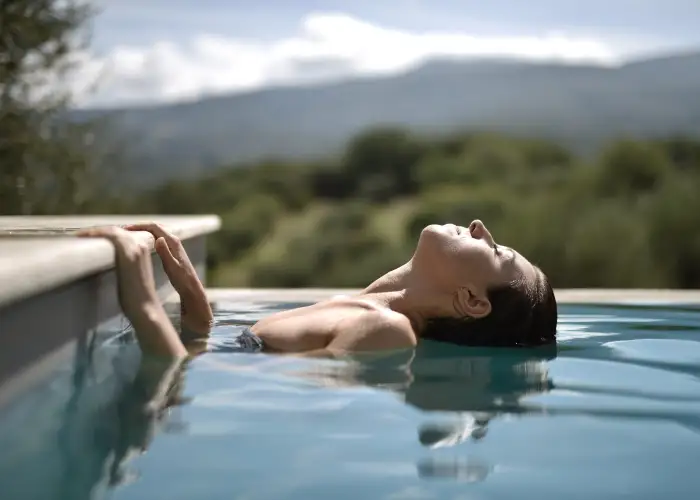
Buoyancy: Easing Joint Stress
Buoyancy is one of the keys to making an exercise pool highly effective in rehabilitation. If you're submerged in water, your body is buoyant — the water takes the weight of your body. This will also help reduce stress on your bones, joints, and muscles and allow you to move painlessly and without much effort.
- Less stress on joints: If you're recovering from surgery or a chronic injury, being in water takes all the pressure off your joints. It’s especially good for those with arthritis or who have been injured and suffered joint injuries.
- Pain relief: Water support allows pain-free movement, allowing individuals to perform exercises in the pool they couldn’t do on land.
Resistance: Building Strength Without the Strain
Your body isn’t just supported by water – it resists it, too. Just struggling to push through the water against its resistance will build strength. A sufficient amount of this resistance, but not too much, is gentle and effective, making it a great option for those in recovery.
- Muscle building: Water’s resistance is great for building and toning muscles without overloading the body, helping you to develop more strength.
- Improved mobility: Regular pool exercises for arthritis or other injuries improve flexibility and range of motion, making it easier to move after an injury.
Low-Impact Nature: Protecting the Body
If you're recovering from an injury, you should avoid things that may make it worse. Exercise pools are a low-impact workout, reducing the chance of additional injury.
- Reduced impact on the body: This water cushions the movements, which puts less stress on muscles, tendons, bones, and joints. It’s particularly good if you’re in the early stages of rehabilitation and you want to be careful about what you do.
- Safe for all stages of recovery: From the onset of recovery to gaining strength following a spell of inactivity, exercise pools support your every stage along the way.
Warm Water: Healing and Relaxation
The body can have therapeutic effects with warm water. Warm water in exercise pools eases the muscles and aids in better circulation, benefiting healing.
- Muscle relaxation: Warm water helps to relax tight muscles and is often soothing to painful and stiff muscles. That’s perfect for back pain, muscle strains, or post-surgical recovery.
- Enhanced circulation: Warm water increases blood circulation to muscles, tissues, and joints, and it gets more nutrients and oxygen to damaged areas faster.
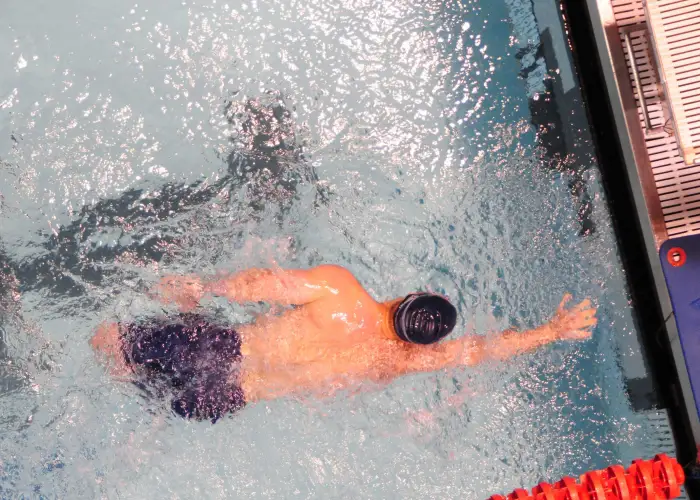
The Types of Exercises in the Pool for Recovery
A variety of exercise pools exist to help with rehabilitation and recovery. Thanks to the buoyancy of the water, you can perform movements that would be difficult or too painful to do on land – making it a great choice for those recovering from surgery or injury.
Walking and Running in Water
Walking or running in an exercise pool provides great cardiovascular activity and puts low stress on joints. When you run in water, you can do it briskly with no impact, compared to what you get when you run on solid ground. Every step is less forceful as it is buoyant in water, although you receive some extra resistance to work against it.
- Walking: Walking in the shallow end is an excellent way to improve endurance and mobility, especially for people with leg or joint pain or healing from injuries to the leg.
- Running: Running in deeper water, is a great exercise for getting strength and endurance, it’s not hard on your knees, hips, or lower back.
Swimming
Swimming is one of the most complete exercises you can do for recovery. It works the entire body, from the arms to the legs, and is a great way to improve cardiovascular health. Moreover, swimming allows you to rhythmically intensify (or decrease) the intensity according to your recovery needs.
- Full-body workout: Swimming is a great example of an exercise that targets all major muscle groups and increases flexibility, all while placing no undue strain on your joints.
Increased endurance: Regular swimming can increase stamina and endurance for successful long–term recovery.
Aqua Aerobics
Aqua aerobics or water aerobics is another low-impact exercise that’s great for recovery. The water creates resistance, so even basic movements such as jumping, kicking, twisting, or stretching will improve muscle strength as well as flexibility.
- Strength training: Simple exercises like squats, lunges, or any movement in the water will put resistance on your muscles, and then you will start to gain strength gradually.
- Increased mobility: Water is buoyant and supports your body, allowing you to move in ways you couldn’t move on land and helping you with an increased range of motion and flexibility.

Stretching and Flexibility Exercises
It’s also the perfect element for stretching exercises, as water provides resistance that you can slowly increase to stretch your body. Water has natural buoyancy, which means you can stretch for longer without overstretching or straining the muscles.
- Improved range of motion: Bigger stretches and longer holds can help you increase your flexibility, and water helps support these potential benefits.
- Prevention of stiffness: Regular stretching in water keeps muscles from getting stiff from recovering from an injury or surgery.
Pool Exercises for Weight Loss and Rehabilitation
An overlooked benefit of doing pool exercises for weight loss is that it helps people shed pounds faster while recovering. Water is also easy to burn calories through, and water workouts are low impact making them a great choice for those with joint pain or rehabbing from injury.
- Calorie burning: Water exercises are just as good as any other exercise when it comes to burning calories without straining your body, be it walking, swimming, or aqua aerobics.
- Fat loss: Combining pool exercises for weight loss with a healthy diet is an effective part of a rehabilitation plan.
Pool Exercises for Seniors: A Lifeline for Aging Bodies
Exercise pools can be a game changer for seniors to stay strong, flexible, and healthy. Water's buoyancy makes it possible for seniors to do exercises that may be too hard on land because of joint pain or limited mobility. This is perfect for the rehabilitation of older adults.
- Improved mobility: Some seniors have trouble with stiff joints or arthritis. Pool exercises for seniors offer a great way to regain range of motion and reduce stiffness.
- Safe, low-impact exercise: Water workouts are low-impact, and so are less likely to cause injury but will still give you a full-body workout.
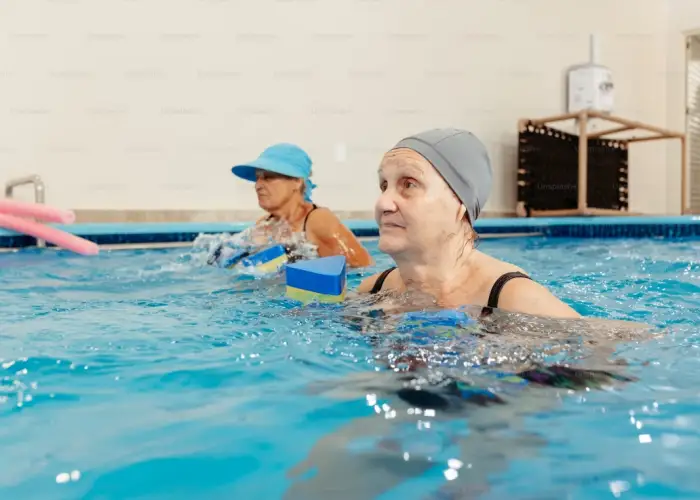
The Benefits of Using Exercise Pools for Rehabilitation and Recovery
Rehabilitation and recovery can be done in exercise pools due to their various benefits. These benefits of exercise aren’t limited to improved strength and flexibility and can boost your recovery process overall.
Reduced Risk of Re-Injury
The risk of re-injury is vitally low since water provides a soft, supportive environment. People in rehab are afraid to push themselves because they worry that they'll make the injury worse, but in an exercise pool, movement is safer because of its low impact.
Faster Recovery Time
Exercise pools are a great way to recover faster. Buoyancy, warmth, and gentle resistance improve circulation, reduce swelling, and reduce muscle tension. All these factors help speed rehabilitation and decrease downtime.
Emotional Benefits
Recovery is not just about the body; it’s also about the mind. Swimming and exercising in water can even have positive emotional benefits; if you’ve had an injury that left you feeling depressed and frustrated, you can surely benefit from a quick recovery. The sound of water can act as an anxiolytic, relieving both the body and the soul during the recovery phase, smoothing out the tension lines, and calming restored nerves.
- Stress reduction: Water is good for your mental health. Water itself is calming, and water exercise and swimming have been proven to increase your sense of physical and mental well-being.
- Motivation: The ability to do exercises in the pool, in a fun, relaxing atmosphere can inspire motivation, leading to a more pleasant recovery process.
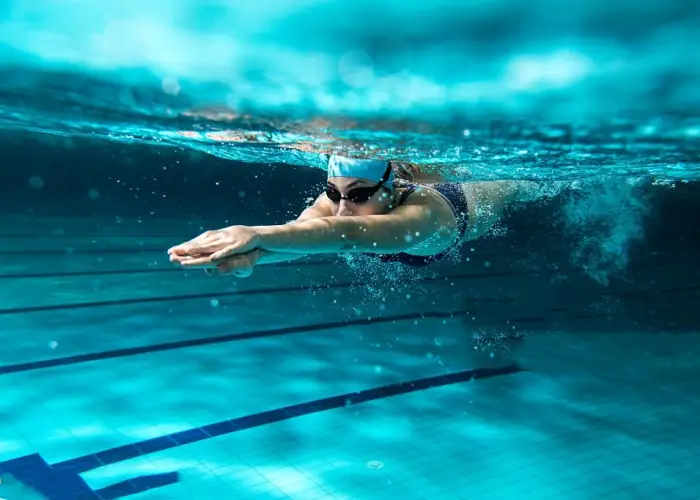
Conclusion
Just think about it: you are wounded, your body is vulnerable, and every step is hard as something seems to be holding you back. Now, imagine being in a pool, able to move free of pain, to strengthen and recover faster. Exercise pools provide an incredible range of benefits that make them an excellent choice for anyone undergoing rehabilitation or recovery.
Remember that recovery takes time, and exercise pools give you a gentle, effective way to work toward your goals. Like any good pool exercise gear, they’re most effective when used properly and consistently.








